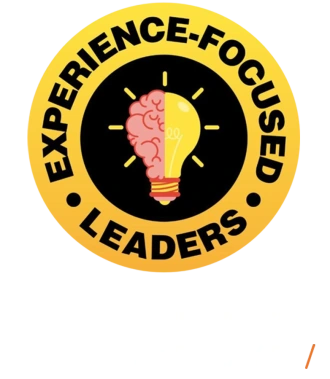Listen to the Podcast Episode on Your Favorite Platform

.svg.png)

A Deep Dive into Negotiation with Stan Christensen
.png)
People tend to assume that negotiations are the car dealer metaphor. Something where you might have two parties and there's a fixed pie. And getting more pie for yourself and less pie for the other person is the focus. And even in most academic institutions and most negotiation courses they're taught that way. The reality is that upwards of 90 percent of negotiations are repeating. You're going to see the people again over time. (Stan Christensen)
(00:01-06:35)
Stan explains that while his course is labeled as a negotiation class, its true focus is on building long-term relationships. He believes that negotiation is often misunderstood as a transactional, win-lose situation, like buying a car. Instead, Stan emphasizes the importance of integrity and creating value for all parties involved, as most negotiations are ongoing and involve repeat interactions.
Stan discusses how many negotiations are mistakenly perceived as one-time events where parties aim to get the most for themselves. He argues that in reality, the majority of negotiations are about forming lasting relationships. For example, in his personal experience, he often encounters people years after the initial negotiation, highlighting the importance of fairness and mutual respect.
A key takeaway from Stan's teaching is the concept of complementary interests. He explains that by understanding and exploiting differences in what parties value, negotiators can "expand the pie" rather than just divide a fixed amount. Alex shares a personal story about his family, where understanding each other's preferences for egg whites or yolks led to a harmonious solution, illustrating this principle in a simple yet powerful way.
To achieve such outcomes, Stan emphasizes the need for openness and willingness to share interests without fear of losing leverage. He encourages negotiators to build trust and foster a collaborative environment where all parties feel their needs are understood and valued.
.png)
Practical Tips on Mastering Negotiation
.png)
Even listening to one podcast episode on negotiation like this puts you ahead of 95% of the people you'll ever negotiate with in terms of training theory frameworks about negotiation. So people are really bad at this stuff. (Stan Christensen)
(06:35-13:16)
Stan reveals that even a single podcast episode on negotiation can put listeners ahead of 95% of people in terms of understanding negotiation principles. He emphasizes that negotiation is a universal skill, essential for everything from dividing household chores to resolving international conflicts. The key is having a framework to approach negotiation, which includes preparation, understanding when to walk away (BATNA), and knowing the interests of all parties involved.
Each party values different aspects of a deal. For example, in a family, some members might prefer egg whites while others prefer yolks. By understanding these preferences, a harmonious solution can be found. Stan advises negotiators to ask directly about the other party’s interests or propose what they think those interests might be to uncover true priorities.
Stan stresses the power of preparation in negotiation. Having a clear agenda and framework allows negotiators to drive the process. Most people do not prepare thoroughly, giving an edge to those who do. He shares that when he suggests an agenda for meetings, it’s often accepted by default, putting him in control of the negotiation.
Alex asks Stan to apply these principles to common business scenarios, such as raising capital and selling a company. Stan notes that investors are often like seasoned car dealers, skilled at negotiation. Entrepreneurs, especially early in their careers, may not realize their strong bargaining position. He advises them to engage multiple investors simultaneously to increase their leverage and control the timeline.
For entrepreneurs considering selling their companies, Stan suggests strategies to attract more potential buyers. By increasing visibility and demonstrating value, entrepreneurs can create a competitive environment when it’s time to negotiate a sale. This proactive approach can lead to better outcomes, as companies that generate interest are more likely to command higher valuations.
.png)

Drive Your Success with Negotiation Strategies
.png)
Optimization is the focus. Success in a negotiation shouldn't be measured in getting a deal done. It should be measured in getting the best deal done. (Stan Christensen)
(13:16-20:42)
Stan begins by debunking the common myth that companies are bought, not sold. He argues that waiting for a buyer to show interest puts the buyer in control, whereas proactively seeking out potential buyers allows the seller to drive the process. By engaging multiple potential buyers simultaneously and controlling the flow of information, sellers can create competition and leverage, leading to better outcomes.
Intermediaries manage the process, present a stronger position, and create the illusion of competition, which can drive up the value of the company.
Alex and Stan discuss the value of building relationships with key people in potential acquiring companies. Alex points out that having connections with product managers or other leaders within these organizations can generate interest in an acquisition. Stan agrees, emphasizing that while building these relationships is beneficial, it's crucial to not let these contacts drive the acquisition process. Instead, maintaining control and timing the approach to multiple potential buyers ensures better negotiation outcomes.
Stan emphasizes the importance of not reacting to unsolicited acquisition offers. Instead, sellers should strategically time their approach to potential buyers and ensure they are talking to several parties at once. This proactive approach allows sellers to optimize their deals rather than simply closing them.
Alex asks Stan to apply these principles to fundraising for startups. Stan explains that venture capitalists are experienced negotiators, akin to car dealers, and entrepreneurs often underestimate their own leverage. By negotiating with multiple investors at once, entrepreneurs can better control the terms and timeline of their fundraising.
Stan concludes with advice on optimizing negotiation outcomes. He stresses that success should be measured by getting the best possible deal, not just any deal. The only way to achieve this is through preparation, strategic relationship-building, and controlling the negotiation process. Whether negotiating a company sale, raising capital, or hiring key candidates, maintaining a proactive stance and leveraging multiple options is essential.
.png)
How to Balance Professional and Personal Negotiations
(20:42-28:16)
Stan begins by emphasizing that good negotiation skills put you ahead of most people, whether in professional settings or personal relationships. He explains that negotiations at home, such as deciding on chores, vacations, or parenting decisions, require the same thoughtful preparation and framework as business negotiations.
Alex shares his personal experience of negotiating with his wife about where to live. Despite having less leverage, the couple compromised and chose Paris. Stan appreciates the long-term relationship focus in such negotiations and shares insights on maintaining balance in family discussions.
Stan discusses the unique challenges he faces as a professional negotiator, where people often feel intimidated negotiating with him. He shares an anecdote about a big corporate deal where the opposing banker, lacking incentive, asked Stan to set the terms, leading to a highly favorable outcome for Stan's client.
Stan advises against making concessions purely for the sake of the relationship. Instead, he suggests doing what’s best for the relationship without compromising on the substance of the negotiation. He highlights the importance of listening to all parties involved and finding objective standards to guide decisions.
Alex brings up a current negotiation with his wife over their children's phone usage. Stan provides a high-level strategy: focus on what’s beneficial for the relationship while not compromising on the core issue. He suggests involving third-party standards, such as expert opinions, to make informed decisions.
Stan proposes a role-play to demonstrate negotiation techniques, emphasizing the need to address underlying concerns (like safety and logistics) rather than starting with rigid positions (like phone or no phone). He recommends exploring alternatives that meet everyone's needs without giving in to potentially harmful compromises.
.png)

From Business Deals to Parenting Battles
(28:16-34:03)
Alex and Stan kick off with a role-playing exercise where Alex plays his wife, expressing concerns over their children’s phone usage. Stan, embodying Alex, demonstrates how to navigate this conversation thoughtfully and effectively.
Stan starts by expressing genuine appreciation for his wife's efforts, acknowledging the heavy burden she carries in managing the children. He emphasizes the importance of recognizing her contributions, which sets a positive tone for the negotiation.
Key Negotiation Techniques:
- Express Appreciation: Start with gratitude to set a collaborative tone.
- Active Listening: Stan highlights the importance of truly listening to the other person's concerns, ensuring they feel heard and understood.
- Reframing the Discussion: Instead of focusing on the conflict (phone usage), Stan reframes the discussion around shared goals (children’s education and logistical needs).
Stan suggests identifying and exploring various options that address both educational and logistical needs without relying solely on smartphones. He proposes researching alternatives like flip phones or communication devices that do not have distracting screens.
Throughout the role play, Stan emphasizes a collaborative approach. He suggests working together to find solutions that meet everyone’s needs, thereby maintaining a balance between the children's requirements and parental concerns.
.png)
From Family Dynamics to Social Media Strategies
(34:03-39:44)
Stan suggests establishing household principles like no screens in bedrooms and limiting screen time in the evenings. He emphasizes the importance of proactive planning rather than reactive measures, highlighting the need for a structured approach to technology use.
Stan and Alex discuss how to differentiate between essential and non-essential screen use. They agree on the importance of setting a good example for their children by managing their own screen time effectively. Stan proposes a family council to discuss appropriate technology use and suggests dedicating one day a week to being technology-free, except for necessary logistics.
.png)

Building Trust in a Noisy World: Family, Business, and Beyond
.png)
It's the economy stupid. That was a refrain you'd hear in the US all the time these days. I think it's the culture stupid. People feel culturally dislocated. I think people on both sides of the aisle need to build relationships across the aisle and recognize that there are legitimate grievances and complaints about what's happening in every country culturally. (Stan Christensen)
(39:44-46:33)
The conversation shifts to the relevance of these family discussions to personal self-regulation. Alex and Stan reflect on the need to care for oneself as much as one cares for others, drawing on the principles from books like David Brooks' "Road to Character" and Lord Sax's "Morality."
Stan shares his favorite books that he uses in his classes and recommends for personal growth. He mentions:
- "How to Know a Person" by David Brooks: Fostering understanding and empathy in an increasingly divided world.
- "The Tyranny of Merit" by Michael Sandel: Challenging the notion that success is solely due to individual effort.
- "Difficult Conversations": Providing practical advice on managing interpersonal conflicts.
- "Stolen Focus" by Johann Hari: Addressing the impact of the attention economy.
- "How to Measure Your Life" by Clayton Christensen: Offering guidance on finding meaning and balance in life.
Stan discusses the rise of populism and the need for constructive political conversations. He stresses the importance of recognizing legitimate grievances and building cross-cultural and cross-political relationships to address societal issues.
.png)
Building Trust in Family and Work
.png)
Most people focus on whether they can trust the other party. A better focus is on what can I do to be trustworthy. That's something you have control over. And it turns out that if you act in a trustworthy manner, that tends to beget the same behavior on the other side. So number one, be trustworthy. (Stan Christensen)
(46:33-55:28)
Stan emphasizes that instead of focusing on whether others can be trusted, individuals should concentrate on being trustworthy themselves. This approach, he argues, often leads to reciprocal trustworthiness. Key points include:
- Never Mislead: Always be honest and transparent, as this builds a foundation of trust.
- Trust Over Time: Trust should develop gradually. High-stakes commitments, especially within families, should always be documented to prevent misunderstandings.
Moving to the business realm, Stan discusses the pitfalls of deceptive practices, such as hidden small print in contracts. He shares his frustration with companies like Comcast that employ tactics to take advantage of customers. Stan advocates for businesses to prioritize long-term relationships over short-term gains, emphasizing:
- Clear Communication: Avoid tricks that mislead customers, as these undermine trust.
- Customer Service: Excellent service and direct relationships with customers build loyalty and long-term success.
Book Recommendations for Personal and Professional Growth
Stan shares several book recommendations that provide valuable insights into trust, ethics, and effective communication:
- "How to Know a Person" by David Brooks: Encourages understanding and empathy in interactions.
- "The Tyranny of Merit" by Michael Sandel: Explores the inequalities in access to opportunities.
- "Difficult Conversations": Offers practical advice for managing conflicts.
- "Stolen Focus" by Johann Hari: Discusses the impact of the attention economy.
- "How to Measure Your Life" by Clayton Christensen: Guides on finding meaning and balance in life.
Stan announces his plans to launch his own podcast, "All Things Negotiation" where he will share more insights and practical advice on negotiation and relationship-building.
.png)
Check the episode's Transcript (AI-generated) HERE.
Other Episodes

Godard Abel | CEO of G2
S 01 | Ep 6 Where You Go for Software: Reach Your Peak


Dean Stocker | CEO of Alteryx
S 01 | Ep 8 Turning Your Customers Into Your Biggest Champions


Peter Fader | Co-Founder of ThetaCLV
S 01 | Ep 10 Turning Your Marketing Into Dollars

Author

Experience-focused Leaders is the #1 Multimedia Podcast! We talk to senior business & tech leaders about the experiences that move forward organizations, customers and society at large. True to form, we mix audio, video, web and eBook formats to turn these authentic conversations into personalized nuggets you'll remember & use.



.png)
